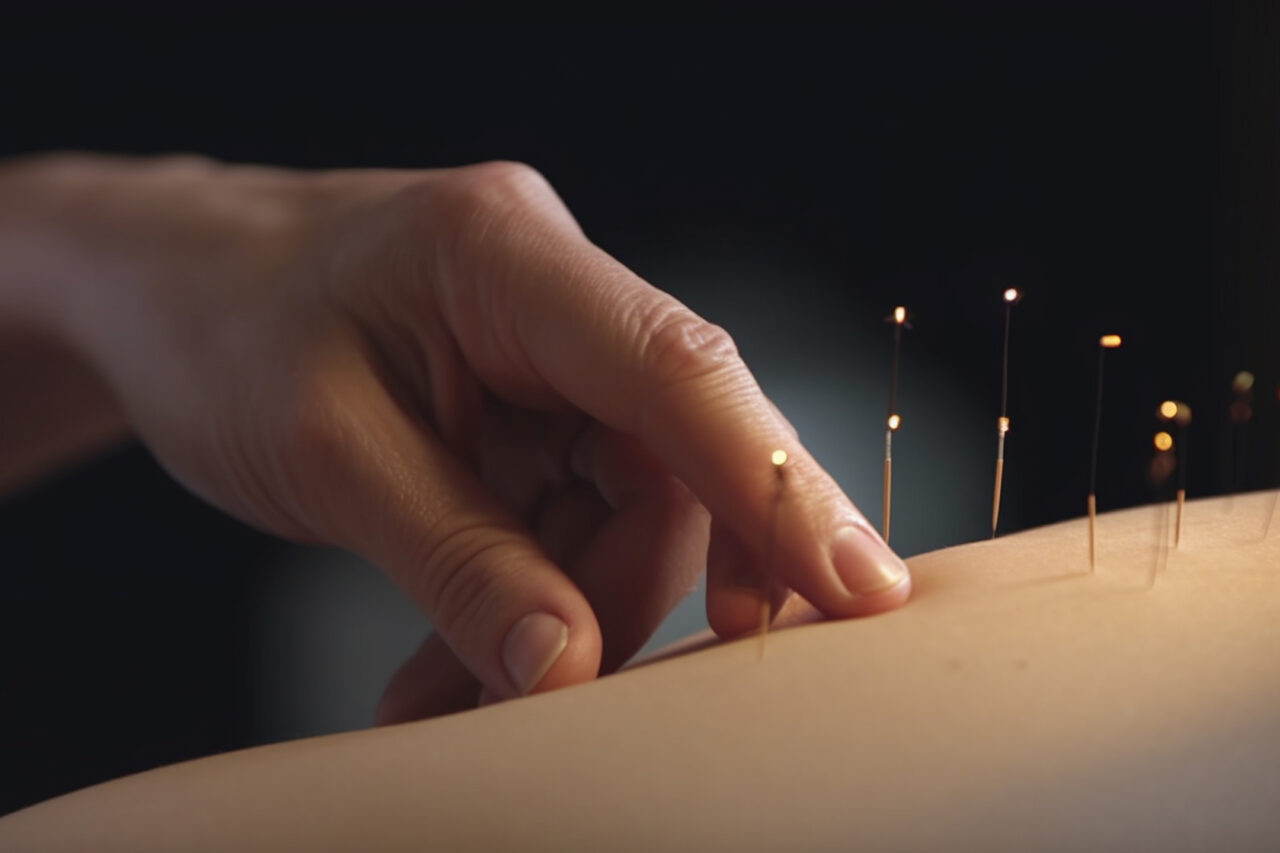 BY Samuel Mathis, MD, MBA, CPE
BY Samuel Mathis, MD, MBA, CPE
One of the hardest parts of my job in primary care is to inform patients of their diagnosis of cancer or a terminal condition. These conversations are hard for the patient, their family, and the clinical staff who care for them. Fortunately, these patients often continue to see us for their primary care needs during their oncology treatment. It is important to have a collaborative care model with oncology, primary care, and the patient’s specialist during this time. Many patients can feel abandoned if they do not receive support from their physicians during their oncology treatment. Patients often seek out integrative treatments for symptoms associated with their cancer or treatment. Supplements and herbal treatments are not always recommended due to their interactions with chemotherapy. However, acupuncture can be a relatively non-invasive therapy that can help reduce symptoms associated with cancer and its treatment.
One of the most common symptoms for patients with cancer is associated pain from either their neoplasm, treatment, or side effects of the treatment. It is estimated between 40-90% of patients with cancer report moderate to severe pain associated with their disease. This pain can be severe and up to 70% of patients report not receiving adequate pain control (1). A Cochrane review of 5 studies (n=285) found that acupuncture caused no harm to patients, but did not carry significant power to produce results. Three of the studies did find some benefit when comparing acupuncture to sham acupuncture, but they did not have significant numbers to verify the results (1). Anecdotally, I have found acupuncture to be a great option to help with cancer pain, but the amount of pain relief is subjective. Larger studies are needed to improve the evidence in this area.
Another complaint for many patients with cancer is difficulty with sleep. A Systematic review of 22 different studies found a significant improvement in sleep for insomnia symptoms among breast cancer patients undergoing active cancer treatment (2). This study found that the benefit to patients’ sleep quality was equivalent to the use of estazolam and better than the medication arm at 1 week. While most of the studies were relatively small, this review offers some encouragement for those seeking non-pharmacological treatments for insomnia. When paired with healthy sleep hygiene such as going to bed and awakening at the same time every day, keeping the bedroom cool and free of electronics, and establishing other healthy sleep routines, acupuncture can improve the quality and quantity of sleep that patients receive.
Finally, acupuncture can be very effective at reducing the symptoms associated with cancer treatments. A 2008 review found that acupuncture reduced nausea and vomiting associated with treatment compared to control groups (3). Electroacupuncture seemed to be more effective than without. Another study in the review also showed that narcotic use was lower in patients receiving acupuncture (3). This finding has been replicated in other studies that do not include cancer patients. For women with breast cancer, acupuncture decreased both the frequency and severity of hot flashes as well as improved fatigue in many patients undergoing treatment (3). All of these studies were relatively small, but did have statistically significant findings.
We don’t have a great understanding of how acupuncture helps all of these different symptoms, but we do know that it impacts a significant amount of brain function and activity. Some studies are now looking at functional MRIs and how stimulation of acupuncture points in the hands and feet can cause activation of differing parts of the brain. As for pain, we know that acupuncture can cause the release of mu opioid receptor agonists to help with pain symptoms (3). It also activates somatosensory areas of the brain and may desensitize these areas to the pain signaling coming from the neuronal network. However, more research is needed to prove these conjectures. Whatever the case may be, acupuncture can be helpful for patients undergoing oncology treatments without negatively impacting their chemotherapy or radiation therapy.
Works Cited:
- Paley CA, Johnson MI, Tashani OA, Bagnall A-M. Acupuncture for cancer pain in adults. Cochrane Database of Systematic Reviews 2015, Issue 10. Art. No.: CD007753. DOI: 10.1002/14651858.CD007753.pub3.
- Zhang J, Zhang Z, Huang S, Qiu X, Lao L, Huang Y, Zhang ZJ. Acupuncture for cancer-related insomnia: A systematic review and meta-analysis. Phytomedicine. 2022 Jul 20;102:154160. doi: 10.1016/j.phymed.2022.154160. Epub 2022 May 14. PMID: 35636168.
- Lu W, Dean-Clower E, Doherty-Gilman A, Rosenthal DS. The value of acupuncture in cancer care. Hematol Oncol Clin North Am. 2008 Aug;22(4):631-48, viii. doi: 10.1016/j.hoc.2008.04.005. PMID: 18638692; PMCID: PMC2642987.


